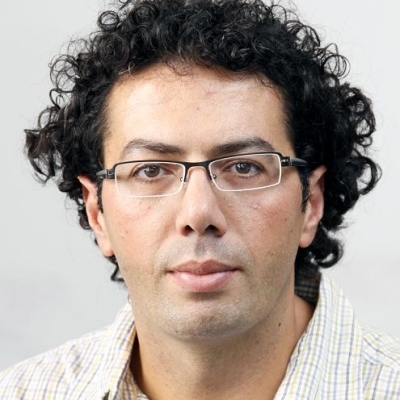



 Ramzy Baroud
Ramzy BaroudNigerian troops cancelled their planned withdrawal from Sierra Leone last month, after the rebel Revolutionary United Front failed to disarm as agreed in the July peace deal. Fears remain of a resumption of the brutal fighting that has killed thousands and left many more deliberately maimed. However, after the July deal, which called a ceasefire in the civil war which has been characterised by the rebels’ grisly killing and hand-hacking campaigns, the impoverished former British colony is coming to terms with itself.
The bloodiest era in the country’s modern history started 8 years ago when young officers launched a military coup in 1991, sending the president of the country into exile and instituting themselves as the ruling authority. In 1996 President Ahmed Tejan Kabbah was elected by a convincing majority. He was quickly overthrown by the Allied Forces Revolutionary Council (AFRC) with the help of the RUF in 1997. He returned to power in February 1998, after the Nigerian-led West African intervention force ousted the military regime.
The January RUF offensive has been described as the most violent and the bloodiest campaign to strike the country in 8 years of civil war. Outgunned, broken and defeated, the Sierra Leonean army could not continue fighting. A peace agreement was signed on July 7, 1999, between the rebels and the government. One of the accord’s provisions speaks of a power-sharing government in which both the rebels and the dismantled government jointly participate.
Now, Sierra Leone is in internal division on whether the July peace accord was a worthy compromise, and whether the cultivated results of the agreement matches the destruction caused by the rebels’ actions. Another challenge also presents itself to the pre-dominantly Muslim country; how capable is the power-sharing government of restoring the almost entirely ruined infrastructure?
In an interview with Qatar based al-Jazeerah TV, president Kabbah said that all of his attempts to generate funds for his destroyed nation, has got him almost nothing. “Arab governments promised to grant us $200,000.00, however no money has been delivered yet”, he lamented. The man’s latest tour to the Arab world merely gained him a plane filled with food.
Although the most gruesome of the killings have been brought to an end, the fear of resumed violence still permeates the country. RUF rebels openly roam Freetown, passing by sites where they heartlessly killed and raped thousands of innocent people. The RUF leaders are ensconced in Freetown’s fanciest hotels, briefing reporters on the latest news of their ongoing peace talks with the government. The people of Sierra Leone, astonished and angry, are not convinced that such a treaty can ever bring them justice.
The latest major offensive executed by the rebels in January left at least 5,000 killed, many more wounded and mutilated - not least through the rebels’ brutal amputations - and entire neighborhoods completely leveled.
An earlier amputation campaign was carried out following the 1996 presidential elections. RUF rebels vowed then to cut off the hands of anyone who dared to vote. Moderate statistics speak of 4,000 who lost a part of their bodies, mostly legs, arms, ears or tongues.
The RUF was prevented from outright victory by the intervention of the West African Intervention Force, dominated by over 11,000 Nigerian troops. This force sided with Kabbah’s government, which had failed to protect its last safe haven, Freetown, from the barbarous killing campaign committed by the rebels.
Horrifying stories are told of women being raped by flaming logs in exchange for the lives of their children. Reports speak of rebel gangs wandering the town carrying bags of human remains. Thousands of Sierra Leoneans are still missing. Some, mostly little girls, are thought to have become sex slaves, while others are presumed dead.
The Nigerian government’s decision to cancel the withdrawal of its troops has been greeted with relief in Freetown. There had been a growing fear among the people that the killing campaign could restart. According to the July peace agreement, the Nigerian troops would depart Sierra Leone following the disarmament of the rebels. However, the rebels have not agreed to disarm.
Even if the RUF rebels are truly sincere about their quest for peace, another disaster is expected to soon wreak more havoc in the already wrecked nation.
The ousted military junta, Allied Forces Revolutionary Council (AFRC), which led the 1997 military coup, has expressed its dissatisfaction with the July peace agreement. In a message that was heard loud and clear by all involved parties, the AFRC kidnapped two RUF commanders and detained them for over a week. The kidnapped commanders, Mike Lamin and Dennis Mingo (also known as Superman,) were released on September 7, 1999. Internal fighting between factions of the rebel groups is expected to break out if the AFRC is not somehow included in the peace arrangements.
Sierra Leone is indeed a devastated country. Hundreds of millions of dollars are needed to establish a reliable infrastructure, so that the county can stand on its own feet. Political problems apart, the society is scarred by war. With no money to care for the amputatees, and only two psychiatrists in the entire country to try to help people deal with the psychological and emotional scars left by the war, the recovery process is likely to be long and difficult.
Muslimedia: October 1-15, 1999
